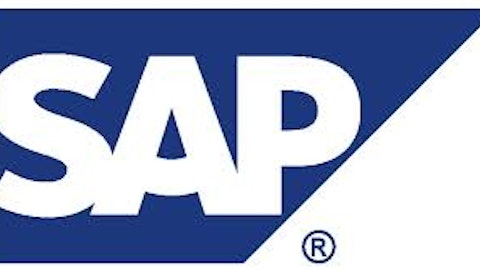Microsoft Corporation (NASDAQ:MSFT) is expected to unveil its third Xbox console sometime this year. The device is widely expected to compete directly with Sony Corporation (ADR) (NYSE:SNE)’s Playstation 4 and Nintendo’s Wii U.

Yet, in recent months, Microsoft has been laying the groundwork to ensure that its third Xbox will be an all-encompassing media center, likely to compete directly with the upcoming wave of smart TVs, including Apple Inc. (NASDAQ:AAPL)’s long rumored device.
The evolution of the Xbox 360
Microsoft launched the follow up to its original Xbox in 2005. When the Xbox 360 hit the shelves, it was all game console — the first of its generation, in fact. But in the subsequent years, Microsoft Corporation (NASDAQ:MSFT) has slowly bolstered the Xbox’s entertainment focus.
Xbox Live is the Xbox’s internet subscription service. It was created to provide multiplayer gaming over the Internet, and though that remains its focus, its features have been updated through the years.
In 2008, for example, Xbox Live received an upgrade that gave the service integration with Netflix, Inc. (NASDAQ:NFLX)’s video library. Integration with other video services was later added, including HBO Go, Hulu, and MLB.tv. The ability to connect to music services was also made available, as the Xbox was integrated with last.fm and iHeartRadio.
Perhaps the biggest addition to Xbox was the 2010 release of Kinect, a camera that tracks the movement of players. Although the Kinect is primarily known for allowing Microsoft Corporation (NASDAQ:MSFT) to follow Nintendo’s trend of motion-controlled video games, it also added some key functionality to the console itself: owners of Kinect can control their Xbox with voice commands and hand gestures.
Microsoft’s shift into media
In addition to incorporating other services, Microsoft has been making moves to become a content player in its own right.
Last October, Microsoft launched Xbox Music, a subscription-based music streaming service and digital music store. It was largely a carryover from Microsoft’s Zune Music Marketplace — necessary, as Microsoft had abandoned its lineup of Zune devices.
The decision to re-brand the Zune Music Marketplace to Xbox Music says a lot about Microsoft Corporation (NASDAQ:MSFT)’s intent for its Xbox brand. No longer does Xbox stand simply for gaming; rather, Xbox represents the entirety of the entertainment spectrum.
Microsoft has also been getting into the video content business. Last September, Microsoft hired former CBS Corporation (NYSE:CBS) executive Nancy Tellem to oversee the creation of original content. In Microsoft’s press release, the company named the Xbox specifically as a device that would benefit from Tellem’s content.
Microsoft to acquire Netflix?
In line with its content aspirations, Microsoft Corporation (NASDAQ:MSFT) has long been seen as a natural suitor to acquire Netflix. Periodic market chatter of an imminent deal has sent shares of Netflix rallying a number of times in recent months.
Netflix, Inc. (NASDAQ:NFLX)’s CEO, Reed Hastings, resigned from Microsoft’s board last October after serving roughly five years. Officially, Hastings claimed that he wanted to reduce the number of boards he was serving on, so that he could devote more of his time to Netflix.
Unofficially, Hastings resignation may have been to avoid a potential conflict of interest, particularly necessary if Microsoft was mulling a bid for the company. Strategically, Microsoft’s ownership of Netflix would make sense if it was looking to build Xbox as a media hub.
If it had Netflix, Microsoft could offer its content free to all Xbox Live subscribers. It would also give Microsoft Corporation (NASDAQ:MSFT) the rights to Netflix’s new hit series House of Cards, and Netflix’s pipeline of upcoming content.
Carl Icahn, perhaps sensing the obvious synergies, took a near 10% stake in Netflix last October (a few weeks after Hasting’s Microsoft resignation) and began pushing for a sale.
